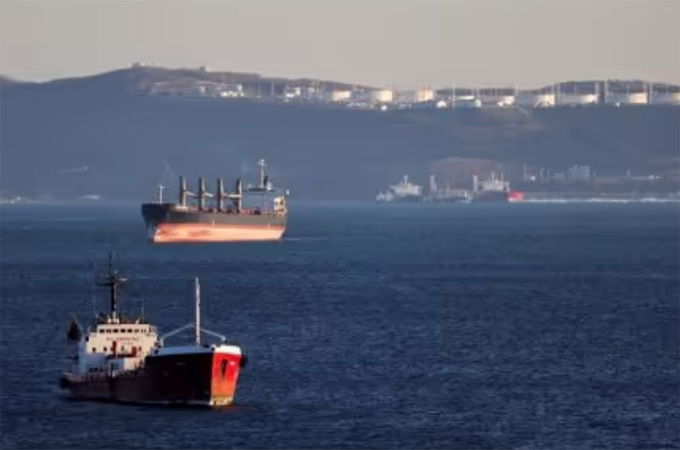
The Russian government banned domestic oil exporters and customs bodies from adhering to Western-imposed price caps on Russian crude.
The measure was issued to help enforce President Vladimir Putin's decree of December 27 that prohibited the supply of crude oil and oil products from February 1, for five months, to nations that abide by the caps.
The G7 economies, the European Union and Australia agreed on December 5 to ban the use of Western-supplied maritime insurance, finance and brokering for seaborne Russian oil priced above $60 per barrel as part of Western sanctions on Moscow over its actions in Ukraine.
The new Russian act bans corporates and individuals from including oil price cap mechanisms in their contracts.
They also have to report to customs officials and the energy ministry any attempts to impose oil price caps.
In addition, customs bodies have to prevent goods from leaving Russia if they find such mechanisms have been applied.
The Western allies plan from February 5 to set two caps on Russian oil products, one on products that trade at a premium to crude, such as diesel or gas oil, and one for products that trade at a discount to crude, such as fuel oil.
The Russian government's act also calls on the energy ministry, with the approval of finance ministry, to work out an approach for monitoring prices of Russian oil exports by March 1. -Reuters


































































